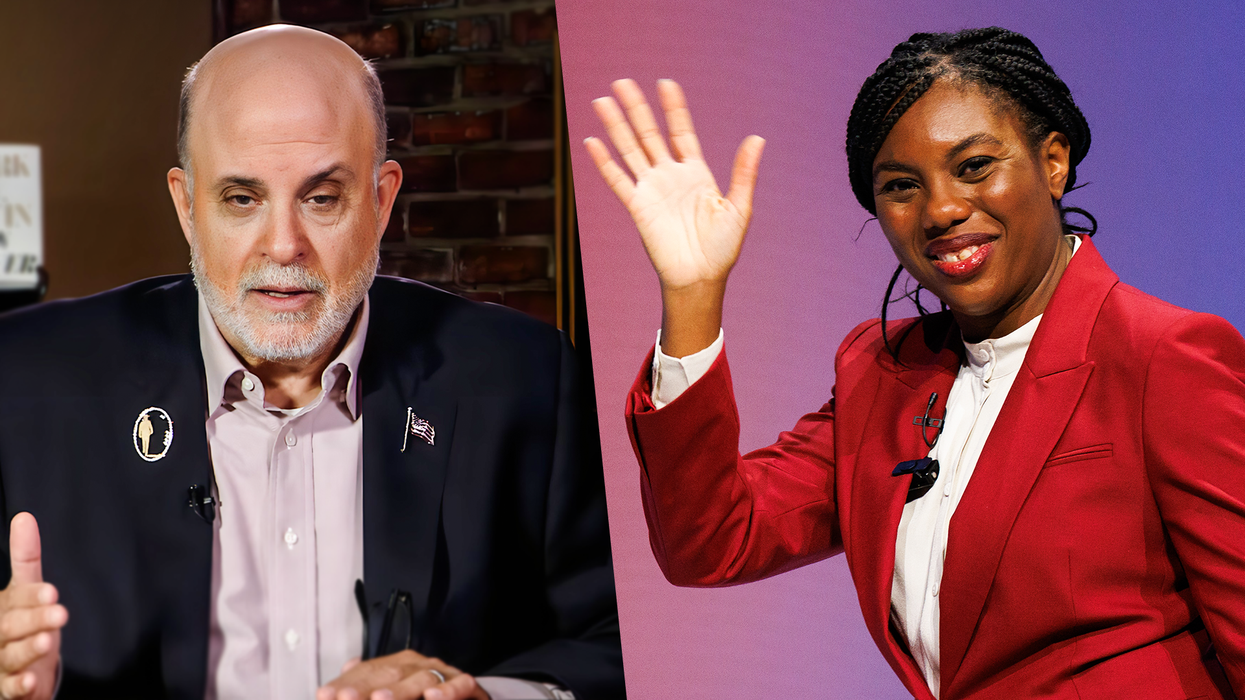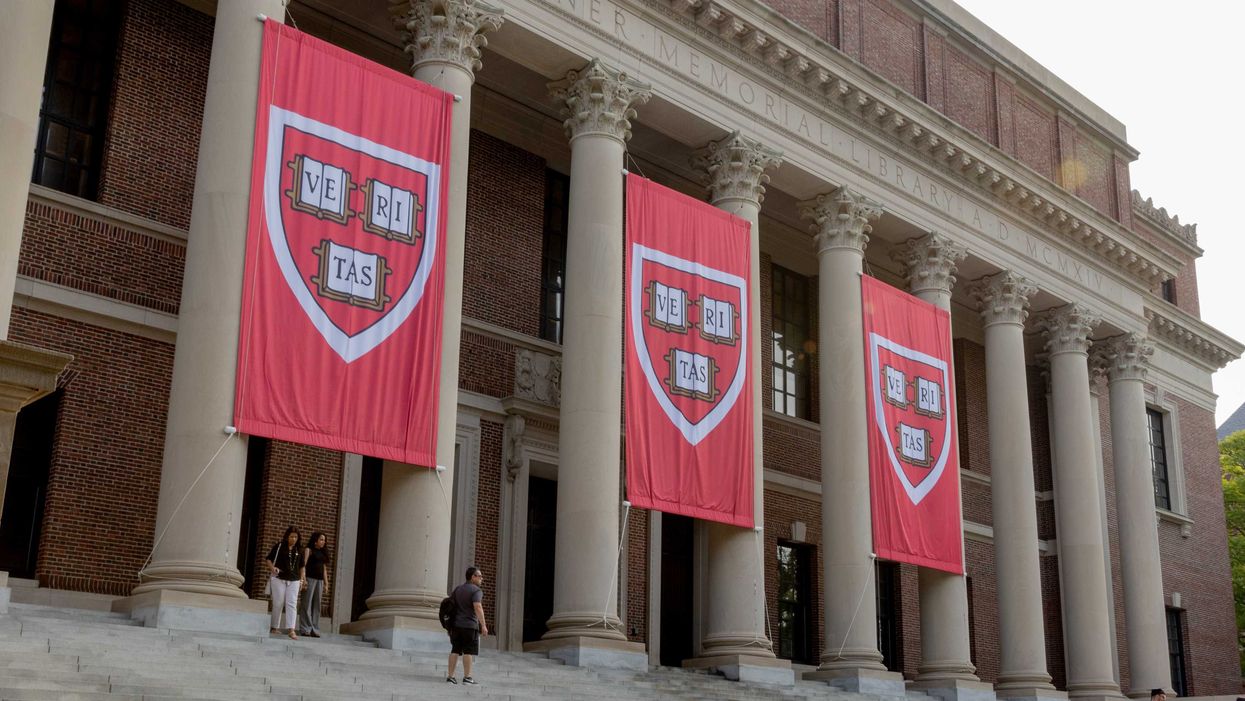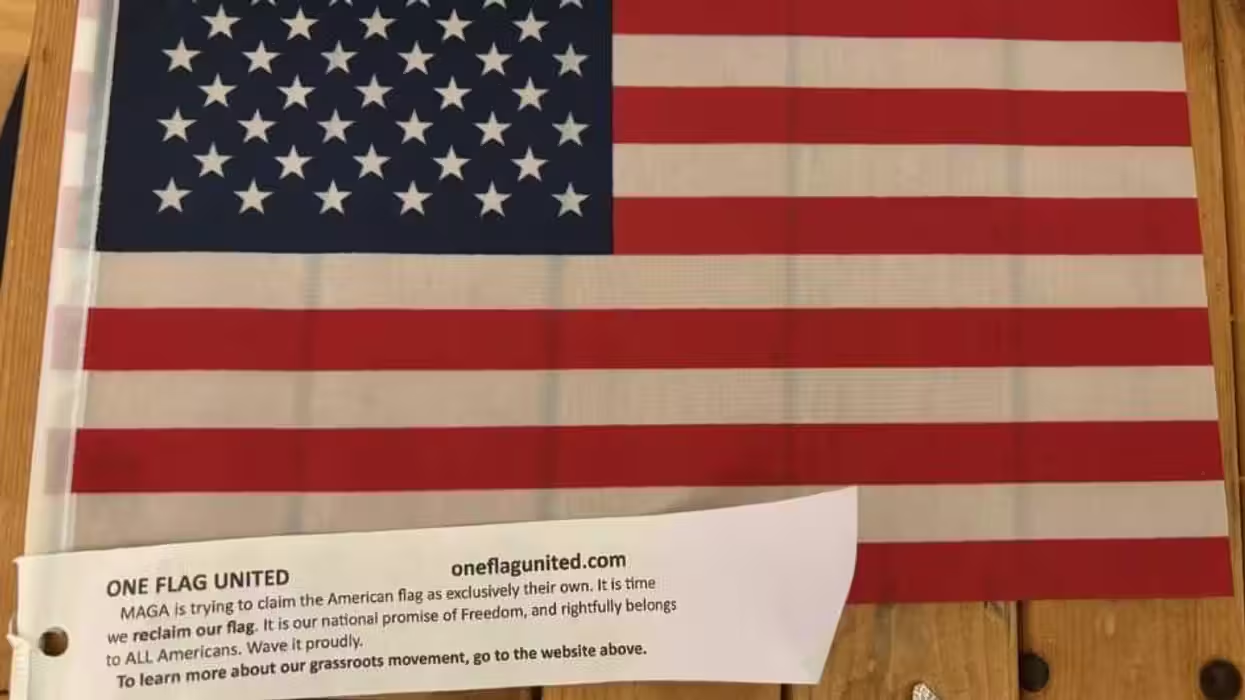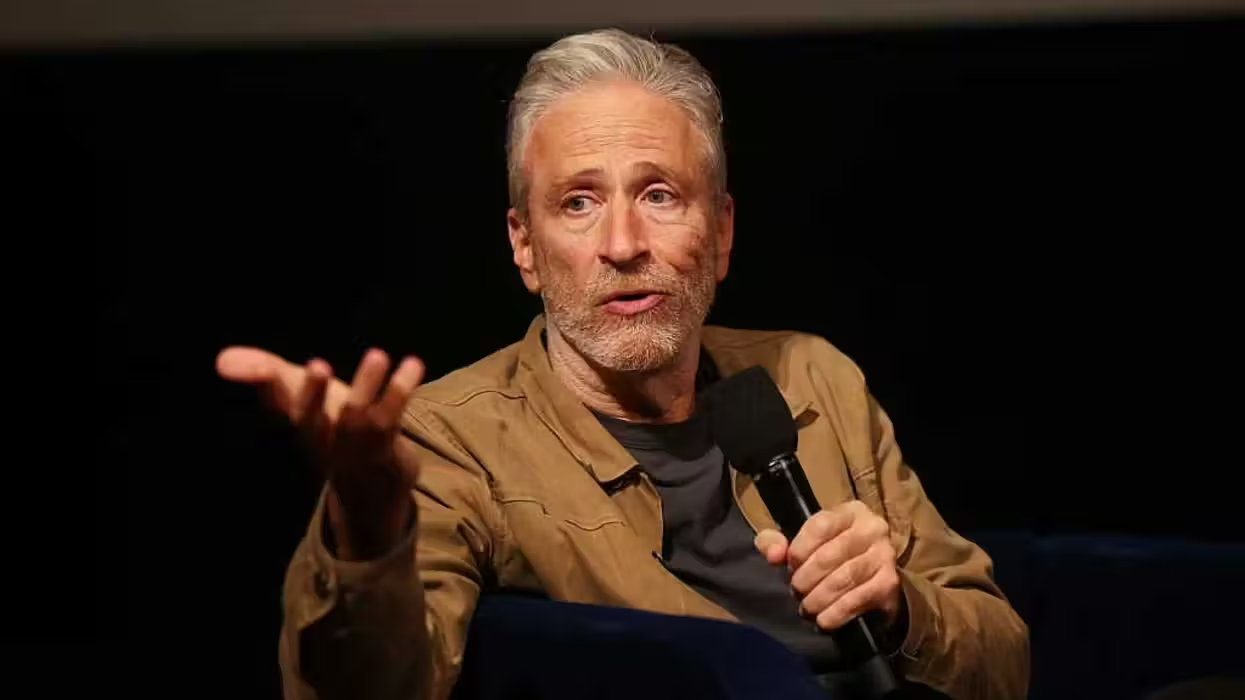© 2025 Blaze Media LLC. All rights reserved.
Are More Americans Now 'Mixing and Matching' to Form Their Own Religious Experiences?
September 15, 2011
“They look at church and wonder, ‘Jesus died for this?’”
 Perhaps America really is becoming a cookie-cutter society. In his book, “Futurecast,” faith and religion expert George Barna claims that more Americans than ever are crafting their own religious experiences.
Perhaps America really is becoming a cookie-cutter society. In his book, “Futurecast,” faith and religion expert George Barna claims that more Americans than ever are crafting their own religious experiences.
“We are a designer society,” he explains. “We want everything customized to our personal needs — our clothing, our food, our education.” Apparently, Americans now also want to have their religions tailored to their wants and needs. In his book, Barna tracks changes among U.S. Christians (the focus of this particular literature) from 1991 until 2011.
Back in 2009, Barna was already discussing the mix-and-match nature of some Americans' religious beliefs. The following comes from The Barna Group web site:
“Consequently, more and more people are engaged in hybrid faiths, mixing elements from different historical eras and divergent theological perspectives,” Barna stated. “In some ways, we are creating the ultimate ecumenical movement, where nothing is deemed right or wrong, and all ideas, beliefs and practices are assigned equal validity. Everyone is invited to join the dialogue, enjoy the ride, and feel connected to a far-reaching community of believers. Screening or critiquing what that community believes is deemed rude and inappropriate. Pragmatism and relativism, rather than any sort of absolutism, has gained momentum.”
While almost all of the indicators in the surveys Barna most recently analyzed showed religious beliefs and behaviors decreasing (a trend that meshes with the increase in atheism, albeit a small one, the nation has experience), there were two indicators that showed intriguing increases.
First, more people claim that they’ve accepted Jesus Christ as their savior and that they expect to go to heaven. Additionally, the proportion of people saying they haven’t been to church in the past six months outside of special occasions like weddings or funerals increased (24 percent back in 1991 as opposed to 37 percent today).
The first increase will empower believers, but the second will probably scare churches and pastors, alike. But Barna claims that it’s these people -- the church leaders -- who may actually be responsible for this decrease in church attendance.
“People say, ‘I believe in God. I believe the Bible is a good book. And then I believe whatever I want,’” he said. But these same people find themselves bored in church. He continues, “They look at church and wonder, ‘Jesus died for this?’”
As time goes on these people, though they believe in the Bible and in Christ, apparently don’t find the need to be tied down to a congregation or a denomination. Thus, Barna says that every subgroup in America – regardless of race, age, gender and region – is experiencing a disconnect when it comes to religious cohesion.
But beyond a lack of cohesion, there also appears to be a mix-and-match mentality taking form. In fact, some are even questioning if a “god” is needed at all in religion. As Cathy Lynn Grossman writes:
And it’s not only Christians sampling hopscotch spirituality. The Jewish magazine Moment has an “Ask the Rabbis” feature that consults 14 variations of Judaism, “and there are many,” said editor and publisher Nadine Epstein.“The September edition of Moment asks ‘Can there be Judaism without God?’ And most say yes. It’s incredibly exciting. We live in an era where you pick and choose the part of the religion that makes sense to you. And you can connect through culture and history in a meaningful way without necessarily religiously practicing,” Epstein said.
In 2009, the Associated Press reported on a Pew Forum on Religion and Public Life study that indicated similar findings as well as a major growth in the number of Americans who reported having a religious of mystical experience:
Though the U.S. is an overwhelmingly Christian country, significant minorities say they hold beliefs of the sort found at Buddhist temples or New Age bookstores. Twenty-four percent of those surveyed overall and 22 percent of Christians say they believe in reincarnation, the idea that people will be reborn in this world again and again.As for the significant numbers who visit more than one place of worship, it's not just an occasional visit while on vacation or for special events like weddings and funerals.
It will be interesting to see how this trend along with the increase in non-believers plays out. In the end, though Americans may be blending their own religious traditions, there's no telling exactly how this will take shape. Still, the concept, itself, is a fascinating one.
(h/t RNS, via Washington Post)
Want to leave a tip?
We answer to you. Help keep our content free of advertisers and big tech censorship by leaving a tip today.
Want to join the conversation?
Already a subscriber?
Billy Hallowell is a digital TV host and interviewer for Faithwire and CBN News and the co-host of CBN’s "Quick Start Podcast."
Billy Hallowell
Billy Hallowell is a digital TV host and interviewer for Faithwire and CBN News and the co-host of CBN’s "Quick Start Podcast."
more stories
Sign up for the Blaze newsletter
By signing up, you agree to our Privacy Policy and Terms of Use, and agree to receive content that may sometimes include advertisements. You may opt out at any time.
Related Content
© 2025 Blaze Media LLC. All rights reserved.
Get the stories that matter most delivered directly to your inbox.
By signing up, you agree to our Privacy Policy and Terms of Use, and agree to receive content that may sometimes include advertisements. You may opt out at any time.





